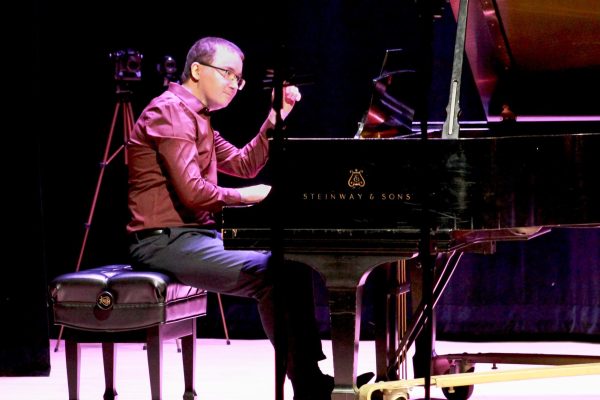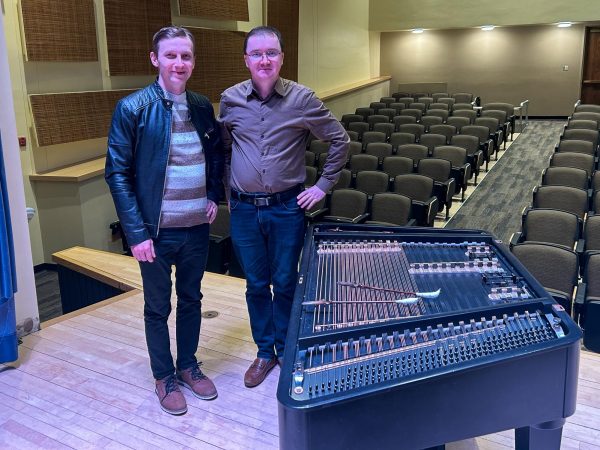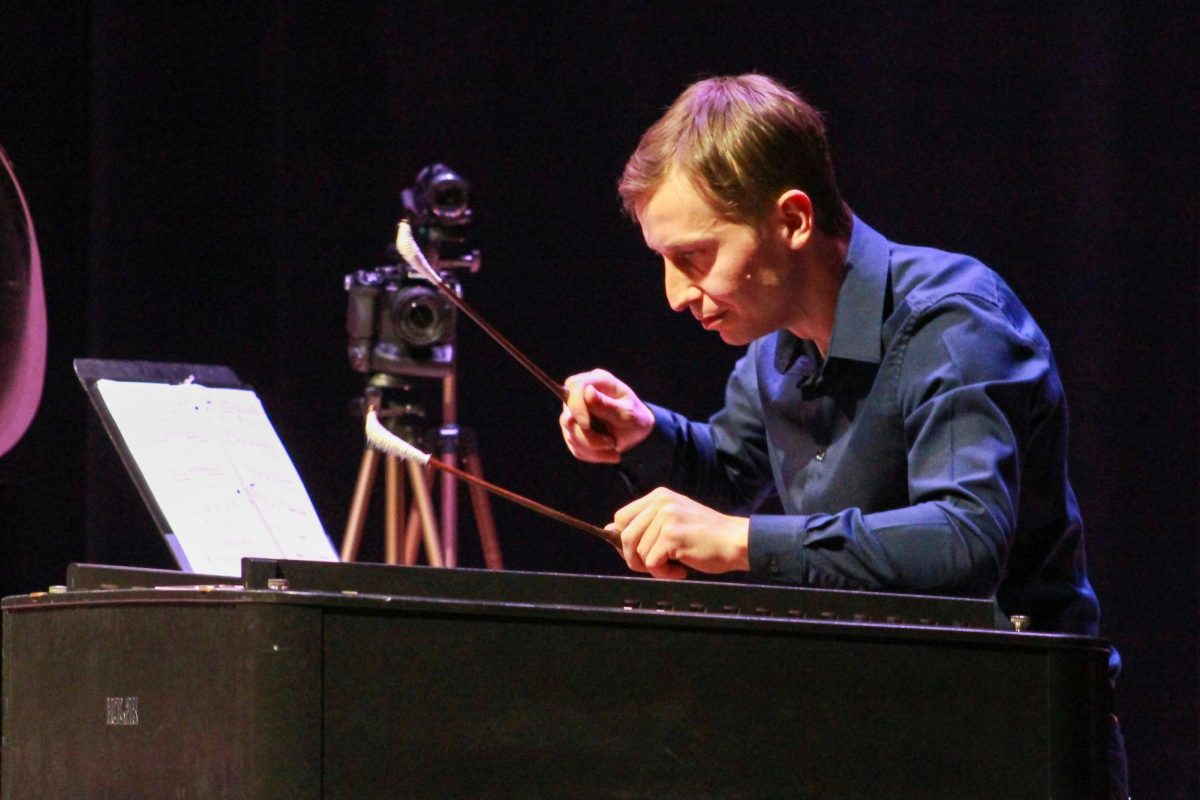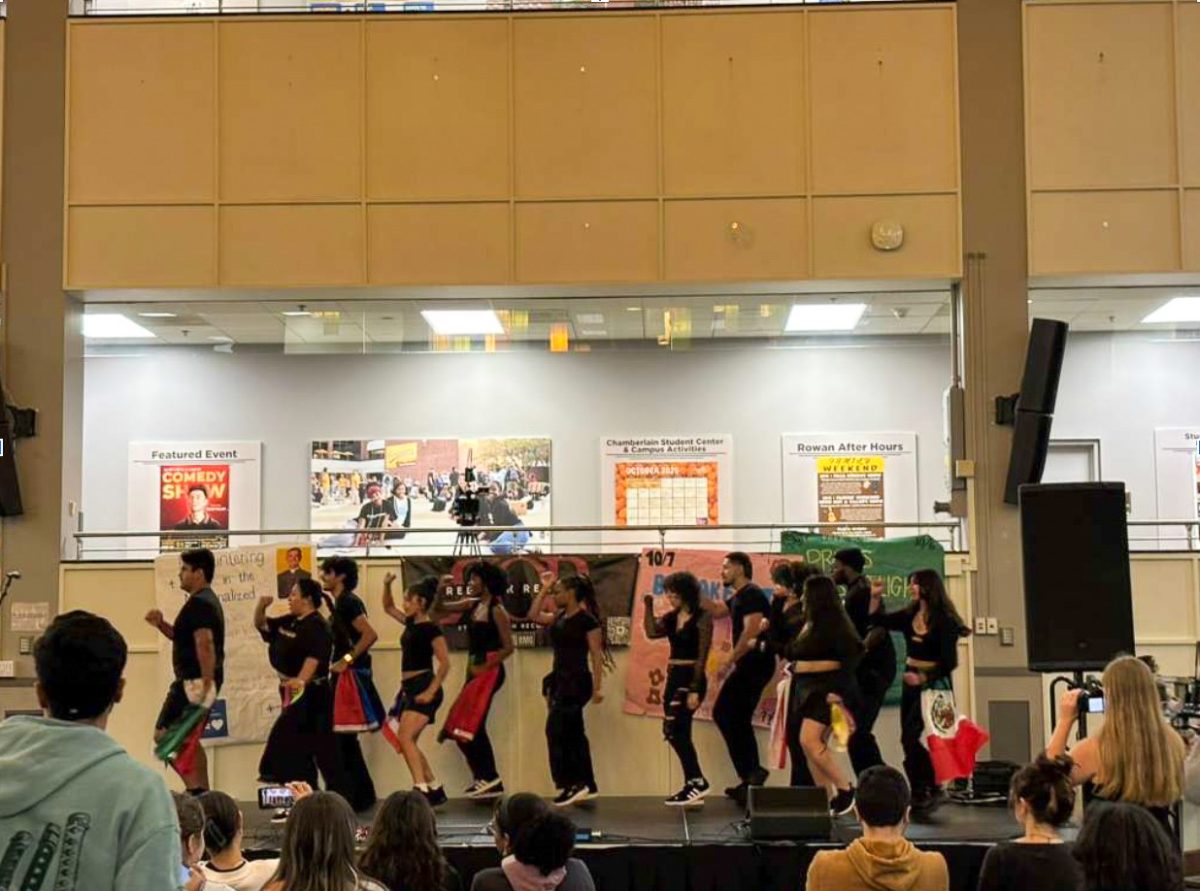There is a truth, often unspoken but true all the same, that those who fully devote themselves to their art move at the hand of forces so intuitive to their perspective, yet so often alien to onlookers, that in many cases, they may appear the most faithful people in any given room. That ennobling faith of artists to pursue the beautiful is the cause of some of the best aspects of what it means to be human, the fuel required for the dedication and insight required to bring those flowery aspects to blossom. From across the world and through decades of dedication, Alexander Timofeev and Ivan Curtean have come to share a glimpse into that same faith transposed into musical form with Rowan.
On the evening of Saturday, Feb. 22, Timofeev and Curtean took to Wilson Hall’s Boyd Recital Hall to give a performance in an installment of the College of the Performing Arts Spotlight Series. As guests began filtering in to take their seats, the stage was uncurtained to reveal two instruments, sitting on display to greet the audience as they shuffled in. On the left, a massive piano, and on the right, an unknown, appearing somewhat like a table with strings stretched over its surface: for the first time in the university’s history, the cimbalom had arrived at Rowan.
“The cimbalom as an instrument, there’s an interesting mix between the percussive element, but also the vocal element,” said Curtean, waxing on the qualities of the instrument he would perform that night, “The mallets that the cimbalom player is using, they can create subtle tremolos [wavering effects in musical tone], they can crescendo [increase in volume], they can diminuendo [decrease in volume], there’s just such a wide amount of things they can do.”
The cimbalom is an instrument broadly foreign to both American ears and eyes: strings of different lengths and thicknesses stretched out over an open surface. The cimbalom is played by striking the strings with two wooden mallets wrapped at their ends in cotton to produce sound. While relatively unknown within the United States, for Timofeev and Curtean, the cimbalom stands as an instrument with a deep connection to their Moldovan homeland.

“One thing that’s very interesting about Moldova is that the conflicts that happened, especially in the twentieth century, Moldova was at the center of locations where there was so much struggle, tragedies happening…it’s a land with a lot of tragedies, but also people who know how to be happy, they know how to sing, they like music very much, and that’s why probably the folk music is so interesting over there, because of those experiences that people living in those lands had over the centuries,” said Timofeev. Although the cimbalom is widely known in many Central European countries (with Curtean even noting it’s often known as the “Hungarian cimbalom”), for Curtean and Timofeev, it’s a piece of Moldovan identity they practice and perfect with pride.
As the two took the stage to give their performance, the show they gave wore flares of Moldova from the beginning. With Curtean playing cimbalom and Timofeev performing on piano, the two moved through many pieces, some played on their instruments individually, some played together, until by the end of the night, the two would perform pieces composed by Timofeev, especially for the cimbalom, including their last number “Lucky Strike.”
“Music is a complex language, and it can sound like it’s coming from a certain place,” said Timofeev. “In the present day, there are more eclectic things going on because you hear all these other things, and I guess in the process of globalization, you can’t avoid it: everybody is affected by that, and in art, this is also very true, but still, I’d like to think that, as a composer, the place where you are active, where you live has a great effect on your art, and I’m lucky that I have this connection with Moldova.”
“From my perspective, whenever I play some of [Timofeev’s] pieces…it’s like something between a Moldovan way of being and the American,” said Curtean. “When I play, let’s say ‘Lucky Strike’ … it’s like a Moldovan guy working in Las Vegas in the night, stealing American rhythms.”
As Curtean praised Timofeev’s composition, Timofeev stepped in to do the same for Curtean’s performance abilities throughout their working relationship.
“It was a pleasure to collaborate with Ivan, there’s very few occasions for a composer to find someone who is eager to learn new music on this level and perform this…the performer can really shape the pieces in a way the composer would never have thought possible, we did meet in Moldova in 2013, over six weeks, and worked together on a daily basis…it was quite an amazing experience for me to go through this process, and it’s only possible when there’s this bond between a performer and a composer,” said Timofeev.

As the two detailed their creative process (and the hardships and triumphs that came with it), Timofeev closed by giving his insight into what fuels his dedication to their art.
“We’re so happy to share this and to make our community more aware of the present moment because usually, in the performance…we feel alive on stage. This is probably one of the most ‘alive’ times that we have when we’re on stage, creating music, and sharing that music with the audience: the sharing makes our life worthwhile, the path that we have, all these hours, these years of practicing, the difficult journey that we’ve had from the beginning, so we’re happy to share it,” said Timofeev.
At the end of the night, Curtean and Timofeev took a bow together as the audience met them with a final round of applause. This week, on Friday, Feb. 28, in Rowan’s Pfleeger Concert Hall, the two are scheduled to perform once again in Rowan University’s Wind Ensemble’s Muzică concerto.
For comments/questions about this story DM us on Instagram @thewhitatrowan or email [email protected]


































































































































































































